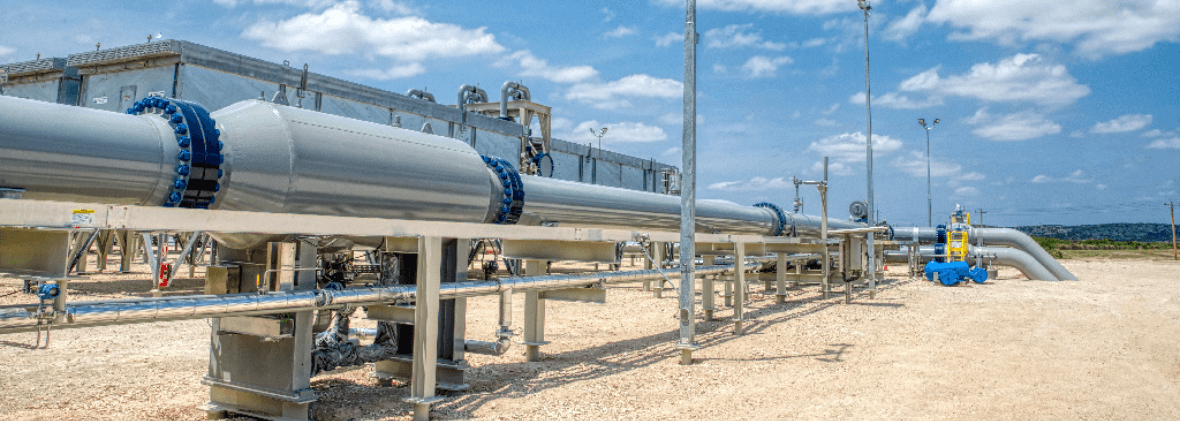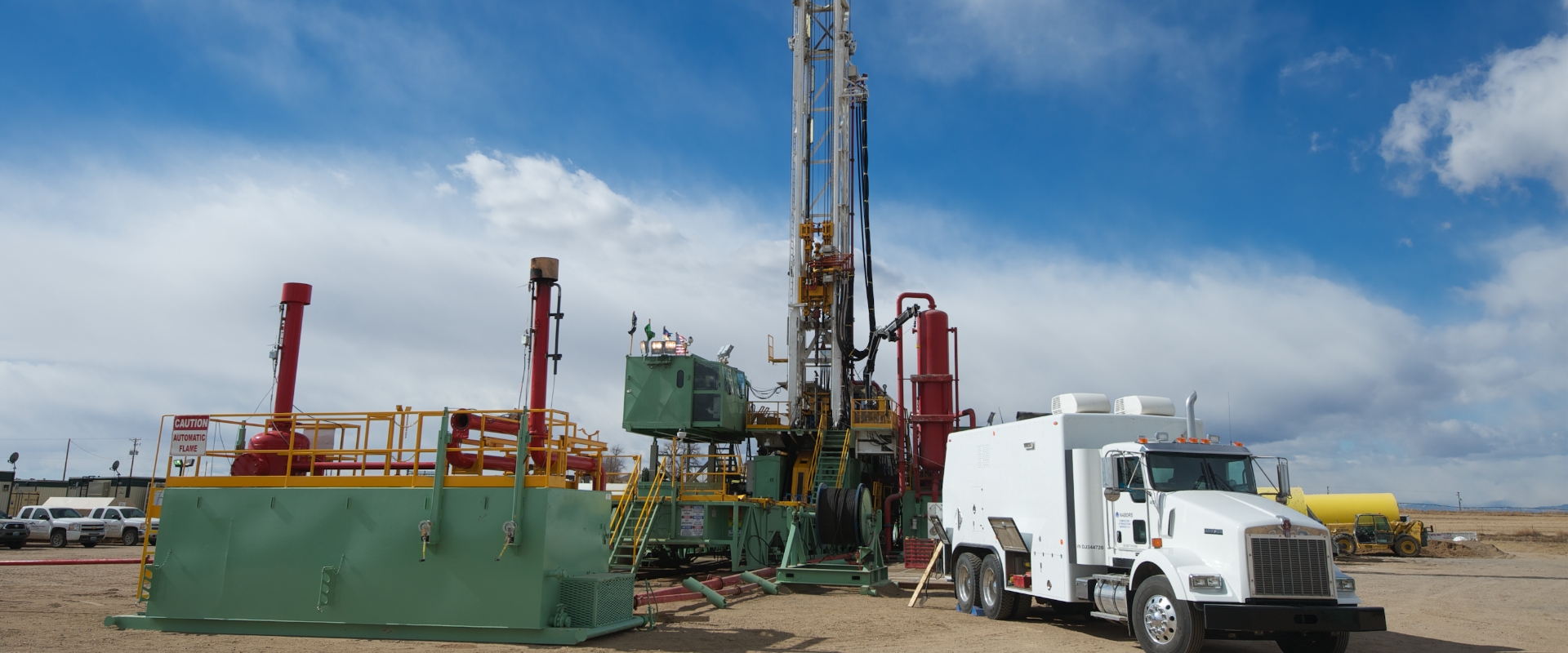Superior Oilfield pipeline equipment rentals: examples from the field
Wiki Article
A Comprehensive Overview to the Numerous Kinds Of Oil Field Equipment and Pipeline Equipment Available
The oil and gas industry relies heavily on customized tools for efficient removal and transportation. Various kinds of machinery, from piercing rigs to tank, play crucial duties in this complex process. Each tool offers distinctive functions that add to overall operational success. Comprehending these components is essential for any person associated with the industry. As the industry evolves, so also do the modern technologies that support it. What developments are on the horizon?
Drilling Rigs: The Foundation of Oil Exploration
Drilling rigs work as the necessary equipment in the domain name of oil exploration, making it possible for companies to accessibility hydrocarbon reserves buried deep below the Planet's surface area. These rigs are available in different types, consisting of land rigs, offshore rigs, and mobile systems, each developed to operate in details atmospheres. Equipped with advanced modern technology, drilling rigs can penetrate geological formations with precision, ensuring reliable source extraction. The structural honesty and functional capacities of these rigs are essential, as they must stand up to extreme problems and substantial pressures. Additionally, the choice of an exploration gear influences the overall job price and timeline, making it an essential consideration for oil firms looking for to enhance their exploration efforts and make best use of performance in their procedures.Pumps: Necessary for Liquid Activity
In the oil removal procedure, the role of pumps is considerable, helping with the activity of liquids throughout various phases of production. Pumps are necessary for transporting crude oil, water, and other liquids from underground reservoirs to the surface and afterwards through pipelines to refineries. They come in numerous kinds, consisting of centrifugal, favorable variation, and submersible pumps, each serving particular objectives based upon the fluid qualities and functional demands. Centrifugal pumps are frequently used for their effectiveness in high-flow applications, while positive displacement pumps excel in taking care of viscous liquids. The option of pump impacts total performance, functional safety and security, and maintenance prices. Appropriate choice and maintenance of pumps are vital for optimizing production and decreasing downtime in oil area operations.Shutoffs: Managing Flow and Pressure

Shutoffs play a crucial duty in taking care of the flow and pressure of fluids within oil fields and pipelines. Various sorts of shutoffs serve unique applications, each developed to satisfy particular functions basic for effective operation - Superior Rentals reviews. Understanding the characteristics and usages of these shutoffs is crucial for maximizing system efficiency and safety
Kinds of Valves
Crucial elements in oil area operations, shutoffs play an important duty in controlling the circulation and stress of liquids within pipelines and tools. Different sorts of valves are utilized to meet the varied needs of oil and gas manufacturing. Usual kinds include gateway shutoffs, which provide a straight-line circulation and marginal pressure drop; globe valves, recognized for their throttling capabilities; and ball shutoffs, recognized for their quick on/off control. In addition, check valves prevent backflow, while butterfly shutoffs provide a light-weight solution for regulating circulation. Each shutoff type is made with particular materials and arrangements to endure the rough problems commonly located in oil fields, ensuring dependability and efficiency in procedures. Recognizing these kinds is important for efficient system administration.Valve Applications and Features
While different kinds of valves serve distinctive objectives, their key applications focus on managing circulation and pressure within oil and gas systems. Shutoffs such as gateway, globe, and round shutoffs regulate liquid activity, making he said sure peak performance and safety. Gate shutoffs are typically utilized for on/off control, offering marginal circulation resistance. Globe valves, on the other hand, deal accurate flow guideline, making them appropriate for strangling applications. Sphere valves are favored for their fast procedure and limited sealing capacities. On top of that, stress safety valve are crucial for stopping system overpressure, safeguarding tools honesty. Overall, the suitable selection and application of shutoffs enhance functional performance, ensuring the dependable transportation of oil and gas via pipes and handling facilities.Compressors: Enhancing Gas Transportation
Compressors play an essential role in the efficient transport of natural gas, guaranteeing that it relocates efficiently with pipelines over long ranges. These tools raise the stress of gas, permitting it to get rid of rubbing and elevation modifications within the pipeline system. Furthermore, compressors help with the balancing of supply and need, suiting fluctuations in usage and manufacturing rates. Various sorts of compressors are employed in the sector, consisting of centrifugal, reciprocating, and rotary screw compressors, each offering distinctive benefits based on the functional requirements. Normal maintenance of these compressors is important to optimize effectiveness and reduce downtime, inevitably adding to a reputable gas transport network. Their essential function highlights the importance of compressors in the total oil and gas facilities.Storage Tanks: Safe and Reliable Liquid Management
Effective transport of gas depends on numerous support group, one of which is the proper monitoring of tank. These storage tanks play a vital function in safely having liquids, guaranteeing that functional effectiveness is maintained while reducing ecological investigate this site risks. Constructed from sturdy materials, they are designed to stand up to high stress and corrosive elements. Properly sized and purposefully situated, storage containers assist in the smooth flow of gas and various other liquids, avoiding traffic jams in supply chains. Routine maintenance and surveillance are necessary to discover leaks or architectural issues, promoting safety and security and compliance with governing standards. Inevitably, the effective monitoring of storage containers is vital for the total stability and dependability of the oil and gas sector's fluid handling systems.
Pipeline Equipments: Infrastructure for Transport
Pipeline systems serve as the backbone of the oil and gas sector, helping with the reliable transportation of hydrocarbons over huge ranges. These systems are composed of various elements, consisting of pipes, shutoffs, pumps, and compressors, all diligently developed to ensure smooth flow. The materials utilized in pipeline building, often steel or high-density polyethylene, are selected for longevity and resistance to corrosion. Pipeline networks can cover throughout land and water, connecting production sites to refineries and circulation facilities. Furthermore, progressed modern technology enables real-time monitoring of flow rates and stress levels, enhancing operational effectiveness. The critical positioning of these pipes minimizes environmental impact while making best use of resource accessibility, thereby playing a necessary duty in conference power needs internationally.Safety And Security Equipment: Making Certain Employee and Environmental Defense
The procedure of pipeline systems, while crucial for power transportation, likewise provides considerable security difficulties for workers and the environment. Safety tools plays a substantial duty in minimizing these dangers. Personal protective equipment (PPE) such as headgears, handwear covers, and non-slip shoes safeguards workers from physical risks. Additionally, gas discovery systems check for leakages, making sure that harmful substances do not posture a hazard to workers or the surrounding ecosystem. Emergency situation closure systems are necessary for swiftly halting procedures throughout a situation, protecting against prospective disasters. Spill control products, including absorbents and obstacles, are essential for reducing ecological effect. Overall, investing in comprehensive safety devices is critical for maintaining functional stability and shielding both employees and the setting in the oil and gas sector.
Often Asked Inquiries
Exactly how Do I Choose the Right Oil Field Equipment for My Project?
Selecting the right oil field devices entails assessing task specifications, budget restraints, and functional requirements. Take into consideration variables such as equipment dependability, compatibility with existing systems, and the provider's credibility to see here ensure peak performance and safety.What Are the Maintenance Requirements for Oil Field Equipment?
Upkeep requirements for oil field devices consist of normal inspections, lubrication, and timely repairs. Operators must also stick to manufacturer standards, display performance metrics, and assurance compliance with security laws to enhance long life and efficiency.
Exactly How Can I Make Sure Conformity With Environmental Laws?
To assure compliance with ecological regulations, business must carry out normal audits, implement finest techniques, purchase training, keep proper paperwork, and remain upgraded on regulation (Superior Rentals near me). Cooperation with ecological agencies can also improve adherence to guidelinesWhat Is the Ordinary Life-span of Pipeline Equipment?
The typical life-span of pipeline tools generally ranges from 20 to 50 years, depending upon aspects such as worldly top quality, ecological problems, and upkeep techniques. Normal examinations can greatly affect long life and functional effectiveness.Exactly how Do I Safely Move Oil Field Equipment to Remote Locations?
Transferring oil field devices to remote places calls for careful preparation, consisting of course analysis, safeguarding authorizations, making use of proper automobiles, and making sure security methods are complied with. Appropriate training and communication among teams are essential for successful transport.Report this wiki page